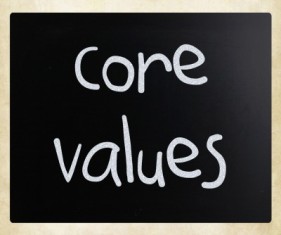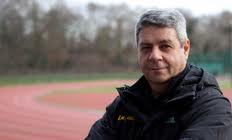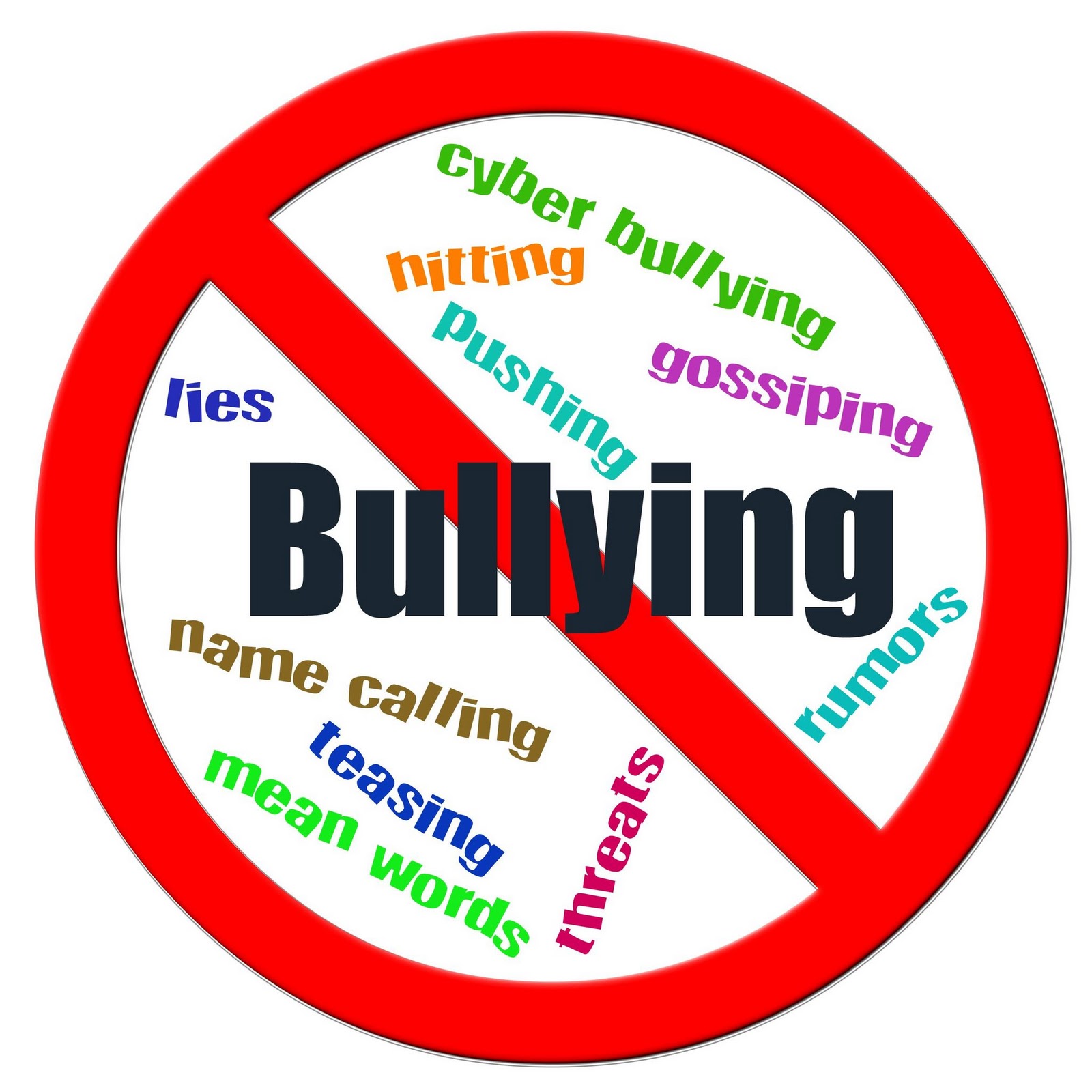I had a very positive meeting with a fellow coach the other day. I enjoy meeting up with other coaches because just like coaching sessions you always learn something new.
We spoke about about core values and how to develop your own. I have them in my head but never wrote them down. That meeting has made me do just that.
What Are Core Coaching Values?
For example, some people love to repair or fix stuff – as kids, they took apart their toys only to put them back together, and as adults they still love fixing in the garage. So “Repairing” is a value for them – they don’t have to force themselves to fix stuff, they just do it.
The values underlie our work, how interact with each other, and which strategies we employ to our mission. The core values are the basic elements of how we go about our work. They are the practices we use (or should be using) every day in everything we do. I believe that one of the best way to make a positive impact on your team and teach your players life lessons is to develop your own list of core values.
This is a list that you carry with you all the time and you should clearly emphasise these core values with your team.
“It is your consistency in behaviour which creates respect and trust in your players, leading to a quality relationship”. – Not Sure who?
It MUST be written down…
Research suggest this is one of the best things you can do as a coach. Your message will get clearer. You’ll have a more profound impact on your players. They will respect you. They will work harder. And you will feel better about the impact you’re having on the team by implementing them.
When JOHN WOODEN, the great coach at UCLA finished 2nd year, his father gave him a card entitled, 7 Suggestions to Follow.
They were:
- Be true to yourself.
- Help others.
- Make each day your masterpiece.
- Drink deeply from good books, especially the Good Book.
- Make friendship a fine art.
- Build a shelter for a rainy day.
- Pray for guidance and count and give thanks for your blessings each day.
Wooden kept a copy of the card in his pocket the rest of his life and used these philosophies in coaching.
“Let’s face it. You can’t teach your players all the hundreds of life lessons there are to teach. But if you FOCUS on a small set of core values every day in your practices and actions, you can have a tremendous positive effect on your players”.
Consistency is vital. Focus is vital. Repetition is vital.
“Repeating the same things over and over again until the players themselves are the ones repeating it back to you.”
All coaches should have their own list of documented and clear core values
I’ve just finished my own list. All of the things on my list will have special meaning and make sense to me. I believe in them. I have been working on them for sometime now (in my head) and when you do yours, spend the time needed to get them just right. Try and spend sometime developing yours but then again you might want to put yours together quickly, so you have them for the coming season. Either way, just by having something written down you’ll be helping the players you coach.
“The goal of the staff at La Masia is to provide young kids with an education that goes far beyond football tactics and technique; it makes them good people, with strong values.” FCB
The idea of core values as discussed here was first presented by the late Thomas Leonard, a pioneer in the field of life coaching.
Mission: To improve Participation, Positive Learning and Development.
Playing Sport is one of the greatest journeys in life that begins from a very young age and can continue throughout our lives, culminating in lifelong memories of joy, despair, happiness and friendships.
LEARNING (Care, Education, Growth, Personal Growth)
I’ll always be a learner – always educating myself to improve and do better for the players I coach. The heart of education is learning, so it is my belief that I should model this at all times. But I also try to create an environment that supports coaches and players on their journey as well. I want every player I coach to know that I was once a player and that I care about how they perform. I want to learn from them, just as much as they will learn from me. You will learn that mistakes are part of the process, however at all times we will work and focus on success not failure. I will place the interest of the the people I work with first in everything I do. The Fundamental goal is to keep kids enjoying Sport for life.
“The very best coaches teach you more than technique and tactics of a sport, they teach you about life.”
“Tell me and I’ll forget; show me and I may remember; involve me and I’ll understand.”
HEALTH (Food, Mindset, Lifestyle, Fitness, Fun & Habits)
I value my health more than anything in my life. Without it, you have nothing; you can’t do very much and it can also affect you mentality. I value my mental, social, physical, emotional and spiritual health and will encourage others do value theirs. Creating a culture of health and well-being is important to me. There is no better feeling in the world, than that feeling after you have worked out, this is what fuels my fire.
“Physical fitness is not only one of the most important keys to a healthy body, it is the basis of dynamic and creative intellectual activity.” John F. Kennedy
TEAMWORK (Enjoyment, Eagerness, Goals, Improve, Pride, Relationships & Respect)
I believe in the value of teamwork and spirit of cooperative effort. Every member in the team has to perform and contribute in his best possible way to achieve a common predefined goal. Individual performances do not count in a team and it is the collective performance of the players, which matters the most. I take pride and everyone plays a part.
Teamwork in football is the most important aspect of the team dynamic.
- I will demonstrate compassion and respect for each other.
- I will always work hard to create a team environment and fun atmosphere.
- I will make sure we always work together and help each other.
- I will encourage growth and positive learning, a will to win and desire to never stop learning.
- Developing strong relationships, respecting others, and showing sincere care to everyone around you.
This is something we will embrace as a team. Healthy competition will be encouraged and team members will be motivated to perform and improve. Teams members will learn to appreciate individual skill and game intelligence. We play to win but not at all cost and recognise both endeavour and achievement. Working for the welfare of the team. Each individual working for the team not himself.
“Coming together is a beginning. Keeping together is progress. Working together is success.”
“I’ve worked too hard and too long to let anything stand in the way of my goals. I will not let my teammates down, and I will not let myself down.” – Mia Hamm
ATTITUDE (Choice, Discipline, Focus, Performance, Positivity, Train)
For success attitude is equally as important as ability. I will strive to have a positive attitude in practice, games, and all aspects of my live. My attitude is what defines me. My attitude affects me and the people around me. My attitude affects my performance in games and training. As a coach, I should spend most of my time thinking about the positive things, the players are doing – versus dwelling on the negative ones (mistakes). I focus on the things I can control. I must always consciously train and perform. I will always have a “proactive” attitude.
Just remember that every moment, every situation, provides a new choice, the effort is the same. This means that life is what I make of it. I choose happiness. I choose sadness. I choose decisiveness. I choose success. I choose failure. I choose courage. I choose fear and in doing so, it gives me a perfect opportunity to do things differently to produce more positive results. Having a proactive attitude is about taking responsibility for my life. I will have a positive and proactive attitude in everything we do.
“Attitude is a little thing that makes a big difference.”
“Talent wins games, but teamwork and intelligence wins championships.” – Michael Jordan
HONESTY (Integrity, Morality, Sportsmanship & Trust)
Some believe Honesty is the beginning of education. For us to succeed we must have honesty and we must trust each other. This is one of the most important things you can do. Honesty applies to your life in countless ways and it can have different meanings. I must search for those meanings.
- An honest person is someone that can be trusted and relied upon.
- An honest person completes their agreements and promises.
- An honest person is also someone that lives with integrity and character, is reliable and someone that others can count on.
Be responsible. Live with integrity and character. Be a good sport. Be true to yourself.
The trust I hold will be fulfilled with professionalism, conscientiousness, and respect for the people I coach. Trust is an important part of learning; if a player trusts me then he/she will do their best for the team. If there is trust, then players are more apt to take risks.
Integrity, it’s a big word and one that gets used a lot. However, I believe it’s essential to build trust and relationships. I think it imperative to be true to what I say and what I believe. It is important to walk the walk and follow through with promises. I will observe fair play both on and off the pitch and will be generous in victory and dignified in defeat. Mutual respect forms the basis of our team. Without integrity, my message is lost.
“Each time you are honest and conduct yourself with honesty, a success force will drive you toward greater success. Each time you lie, even with a little white lie, there are strong forces pushing you toward failure”.
“I am a member of a team, and I rely on the team, I defer to it and sacrifice for it, because the team, not the individual, is the ultimate champion.” – Mia Hamm
HARD WORK (Determination, Discipline, Effort, Mental Strength, Patient, Perseverance, Success & Toughness)
In life there are certain things you cannot control. But there is one thing you can control 100% of the time — YOUR EFFORT. I have 100% control of my effort. I have a choice give 1% 10% 50% or 100%, because of that I expect the same from the people I coach to ALWAYS give their best effort. Even 1% more is working harder. There is no excuse I can give because I have control over it. As a players, you might miss a few chances. You might give the ball away, but it’s the effort you make to get it back. You won’t always play well, but you can always give it your best effort. As a coach I can live with mistakes, it’s part of the process, but what I can’t live with is anything less than your maximum effort.
- You will always get 100% from me.
- It’s important to be in the moment!
- Focus on what you’re doing, when you’re doing it!
- There is no substitute for hard work. Hard work almost always pays off.
“Sportsmanship for me is when a guy walks off the court and you really can’t tell whether he won or lost, when he carries himself with pride either way.” – Jim Courier
“The harder you work, the luckier you get.”
My Teams
My teams we will strive to show incredible perseverance and resiliency, with a never say die attitude. We will play through mistakes and always stick to our philosophy. I believe it’s critical to always persevere — never give up and don’t be afraid to make mistakes. Anything is possible through hard work and perseverance. Through perseverance, hard work and determination, we are committed to bringing success to our team. All the very best Olympians achieved success to participate in world-class event because of their enduring persistence and how they keep on going in spite of all the challenges they face along their journey. Perseverance brings Success. Not only in sports can we find perseverance a common characteristic of people with success, we can find this to be common in all different areas of life. I will keep reminding myself that success only likes people who are determined and keep going no matter what it takes!
“Perseverance is the hard work you do after you get tired of doing the hard work you already did.” – Newt Gingrich
“Desire is the key to motivation, but it’s determination and commitment to an unrelenting pursuit of your goal – a commitment to excellence – that will enable you to attain the success you seek.” – Mario Andretti
That’s them all, for now!
All my players will play with a smile (and always have fun…)
The single most important aspect of playing sport is having FUN. We are going to work hard, but enjoy the process and hopefully with lots of success, but always having fun. Enjoy improving and learning at every opportunity. My playing days, were some of the best times of my life, they still are. No I didn’t always play, start, or do well – I wasn’t always on the A team and Yes, it was hard work at times but, I loved it and learned from it. I say to my players to focus on the things you are good at and work to improve at each and every opportunity. Enjoy the process and put your energy into the positive things. (Always give thanks)
For now, these are my core values, which I can’t imagine will change much. Hopefully you can get some inspiration to write down yours. These will help me remember what is important. Thanks to Mike O’Toole for suggesting I write them down.
I particularly like these quotes, along with all the others ones:
“The Spirit of Sports: The spirit of sports gives each of us who participate an opportunity to be creative. Sports knows no sex, age, race or religion. Sports gives us all the ability to test ourselves mentally, physically and emotionally in a way no other aspect of life can. For many of us who struggle with ‘fitting in’ or our identity – sports gives us our first face of confidence. That first bit of confidence can be a gateway to many other great things!” – Dan O’Brien
“In the end, it’s extra effort that separates a winner from second place. But winning takes a lot more that, too. It starts with complete command of the fundamentals. Then it takes desire, determination, discipline, and self-sacrifice. And finally, it takes a great deal of love, fairness and respect for your fellow man. Put all these together, and even if you don’t win, how can you lose?” – Jesse Owens
I’d like to know what you think and please send me yours.
-End






